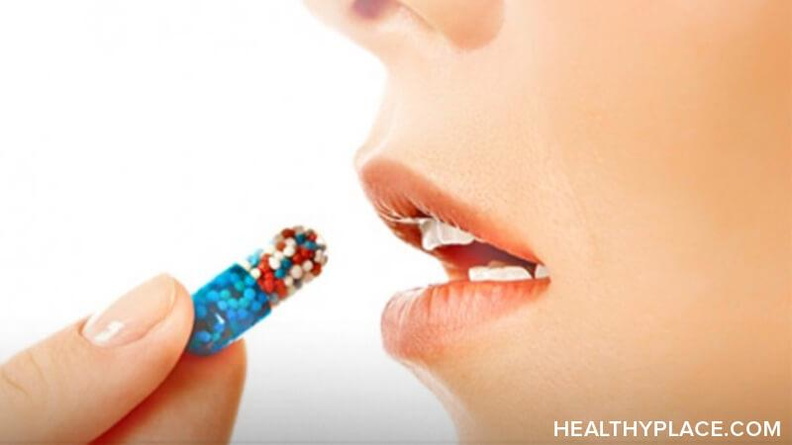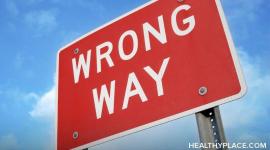What Are the Best Medications, Treatments for Bipolar Depression?

The best medications for bipolar depression are those that decrease symptoms of depression without inducing a manic or hypomanic episode. These medications can improve depression while keeping moods stable. Non-pharmaceutical treatments for bipolar depression have the same goals in mind, but additionally, they help people deal with the challenges, frustrations, and limitations of the disorder while developing coping skills to live well despite episodes of bipolar depression.
Bipolar depression treatment is usually a long-term approach. Mood stabilization, symptom reduction, and the development of coping strategies is best done with a combination of medication and psychotherapy.
Medication and psychotherapy are the primary approaches to treat bipolar depression; however, other treatments exist that can augment medication and therapy. These include complementary treatments like light therapy, brain stimulation procedures, peer support, and lifestyle changes.
Given the importance of medication in treating bipolar depression, let’s look at some of the best medications, some which you or a loved one might be prescribed.
Best Medication for Bipolar Depression
Multiple types of medication are used to treat bipolar depression; however, five stand out as first-line treatments. This means that medications in these groups are the go-to medications when a doctor has diagnosed bipolar depression.
Quetiapine (Seroquel) is an atypical antipsychotic and one of the first medications approved by the Food and Drug Administration (FDA) to treat bipolar depression. It does carry the risk of quite a few side effects, the most common of which are:
- Increased triglycerides in the blood
- Increased diastolic blood pressure
- Tiredness
- Dry mouth
The top two side effects in combination with increased cholesterol and increased appetite, which are also common, can cause rapid weight gain and create secondary health problems. That said, not everyone will experience these side effects and keeping a close eye on weight and bloodwork can sometimes make these side effects manageable.
Olanzapine (Zyprexa) is an atypical antipsychotic that is FDA approved to treat bipolar depression. Olanzapine has proven success in reducing symptoms; unfortunately, this medication carries a risk of significant weight gain that can lead to type two diabetes and a dangerous health condition called metabolic syndrome. Sometimes, monitoring weight, eating healthy, and exercising can keep side effects to a minimum so you can continue to use olanzapine to reduce bipolar depression.
Cariprazine (Vraylar), is another atypical antipsychotic that can also be used to treat depression in bipolar disorder. Unlike the major metabolic concerns associated with quetiapine and olanzapine, with cariprazine, the main concern is involuntary movement disorders (extrapyramidal symptoms) with almost half of people taking the drug experiencing them. The most common specific side effects include:
- Parkinsonism (any condition that causes a combination of the movement abnormalities seen in Parkinson's disease, such as tremor, slow movement, impaired speech or muscle stiffness)
- Akathisia (a movement disorder characterized by a feeling of inner restlessness and a compelling need to be in constant motion, as well as by actions such as rocking while standing or sitting, lifting the feet as if marching on the spot, and crossing and uncrossing the legs while sitting)
- Headache
The olanzapine-fluoxetine combination known as Symbyax is also FDA approved to treat bipolar depression. Because this medication is a combination of an atypical antipsychotic and an antidepressant, the list of common side effects experienced is extensive. The more common side effects include:
- Bloating or swelling of the face, arms, hands, lower legs, or feet
- Body aches or pain
- Confusion
- Congestion
- Cough
- Delusions (beliefs in things that aren’t true in spite of evidence to the contrary)
- Dementia
- Dryness or soreness of the throat
- Fever
- Hoarseness; voice changes; trouble with swallowing
- Rapid weight gain
- Runny nose
- Shakiness in the legs, arms, hands, or feet
- Tender, swollen glands in the neck
- Tingling, trembling and/or shaking of the hands or feet
- Unusual weight gain or loss
While that list can seem daunting, it’s important to remember that an individual will typically only experience a subset of the above and the severity can range from mild to severe ("List of Bipolar Depression Medications and Their Side-Effects").
Lurasidone (Latuda) is one of the newer atypical antipsychotics approved to treat bipolar depression by the FDA. While it does have a number of adverse effects surrounding involuntary movement, these appear to be dose-related. In other words, if the following side effects are an issue, they may be relieved by decreasing the dose of lurasidone:
- Tiredness
- Akathisia
- Extrapyramidal disorder
- Parkinsonism
- Fasting glucose increased
- Nausea
- Insomnia
To be sure, there are other medications and a great many medication combinations that can be prescribed to help treat and prevent bipolar depression that are outside of the FDA approved list. Mood stabilizers, anticonvulsants, and antipsychotics are common starting categories, but each person is different and what works for one person may not work for the next. There is usually a period of trial-and-error as you and your doctor work together to discover what medications are best for you. Further, the body responds differently to medication over time, so adjustments in dose or types are often made as treatment continues.
Overall, medication is the best treatment for bipolar depression because medication works on the brain to meet the disorder at its source. Medication alone, though, is usually insufficient in thoroughly treating bipolar depression. Psychotherapy is extremely helpful in bipolar disorder treatment.
Best Treatment for Bipolar Depression: Therapy
While medication works at the neurological level to ease mood swings and depression symptoms, therapy allows you to process the frustrations of living with bipolar depression and to develop tools and coping skills to move forward.
Some of the helpful aspects of therapy include:
- Identifying negative thought patterns and replacing them with more positive ones
- Learning stress management skills
- Discovering your personal values and goals
- Creating a treatment plan to follow when depression strikes
- Learning how to chart your symptoms, mood, stress, and healthy lifestyle habits
- Learning depression-fighting techniques like mindfulness, deep breathing, and progressive muscle relaxation
Bipolar depression makes life seem grim and hopeless. Working with a therapist can help you recover hope and create a life of purpose and meaning.
Living with bipolar depression is difficult, but you don’t have to remain stuck in its trap. Bipolar depression medication helps you reclaim your brain, and therapy helps you reclaim your life.
Additional Resources
- Drugs.com, Symbyax Side Effects. Jan. 26, 2019. https://www.drugs.com/sfx/symbyax-side-effects.html
- Matsumoto, J. MD, Parkinsonism: Causes and Coping Strategies. Mayo Clinic. April 23, 2019. https://www.mayoclinic.org/diseases-conditions/parkinsons-disease/expert-answers/parkinsonism/faq-20058490
- Medscape, Cariprazine. Accessed June 14, 2019. https://reference.medscape.com/drug/vraylar-cariprazine-999874#4
- Medscape, Lurasidone. Accessed June 14, 2019. https://reference.medscape.com/drug/latuda-lurasidone-999605#4
- Medscape, Quetiapine. Accessed June 14, 2019. https://reference.medscape.com/drug/seroquel-xr-quetiapine-342984#4
- Shiel, W. MD, FACP, FACR, Medical Definition of Akathisia. MedicineNet. Accessed June 14, 2019. https://www.medicinenet.com/script/main/art.asp?articlekey=33264
- Soreff, S., Bipolar Disorder Treatment and Management. Medscape. May 30, 2019. https://emedicine.medscape.com/article/286342-treatment#showall
APA Reference
Peterson, T.
(2021, December 28). What Are the Best Medications, Treatments for Bipolar Depression?, HealthyPlace. Retrieved
on 2025, March 29 from https://www.healthyplace.com/bipolar-disorder/bipolar-depression/what-are-the-best-medications-treatments-for-bipolar-depression



